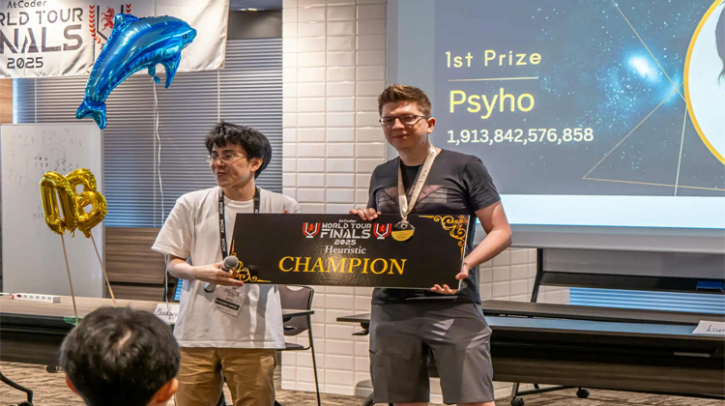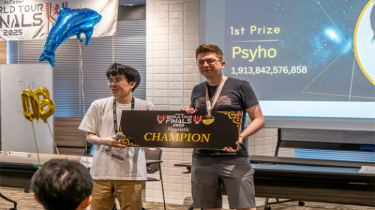Human Coder Edges Out AI in Global Finals Amid Rapid Tech Rise

Published : 20:12, 26 July 2025
In a rare display of human triumph over artificial intelligence in the domain of competitive programming, Polish coder and former OpenAI researcher Przemysław Dębiak, known in coding circles as Psyho, secured a narrow victory against an OpenAI-developed system during the 2025 AtCoder World Tour Finals held in Tokyo. Despite this success, Dębiak, aged 41, cautions that the pace of AI development suggests he may be the final human to claim such a title.
Dębiak, who has a distinguished background in both professional programming and mind sports, emphasized the fleeting nature of human dominance in this field. "It is likely that I may be the last human winner," he remarked, expressing mixed feelings about competing against an entity partly shaped by his own contributions to AI development. "I enjoy these competitions," he noted, "but knowing there exists a superior computational agent would be disheartening."
The 10-hour competition required participants to solve a complex optimization challenge-a hallmark of such events-mirroring the well-known "travelling salesman problem," wherein participants must determine the shortest route visiting each city only once. While these problems are often easy to define, their resolution is computationally intensive, testing both analytical reasoning and coding efficiency.
Although artificial intelligence systems such as ChatGPT have become proficient at generating routine or boilerplate code, Dębiak argues that elite human competitors still surpass AI in high-level problem-solving and logical reasoning. However, he acknowledged that AI systems enjoy a distinct advantage in speed and scalability, akin to replicating a competent human coder thousands of times and executing tasks in parallel.
"At present, top human programmers are still superior in reasoning capabilities," Dębiak stated. "But humans are inherently constrained by their typing speed and single-threaded cognition, while AI systems can explore numerous code variations rapidly and concurrently."
This event underscores a broader trend within the technology sector, where firms such as Meta and Microsoft are increasingly deploying AI to automate software development. Industry leaders, including Anthropic CEO Dario Amodei, have recently warned that AI could displace up to 20% of white-collar jobs within the next five years.
Dębiak reflected on this broader societal transformation with a degree of ambivalence. "Every profession is confronting this reality, especially white-collar occupations. Manual labor may have a temporary reprieve due to slower progress in robotics," he explained.
He concluded with concern for the societal implications of accelerating technological change: “We face numerous challenges—ranging from disinformation to existential issues of purpose. Historically, societal adaptation occurs gradually, yet technology is evolving at an increasingly rapid pace.”
Dębiak’s win, while commendable, may represent a final milestone before AI definitively surpasses human capability in competitive programming.
Source- The Guardian











